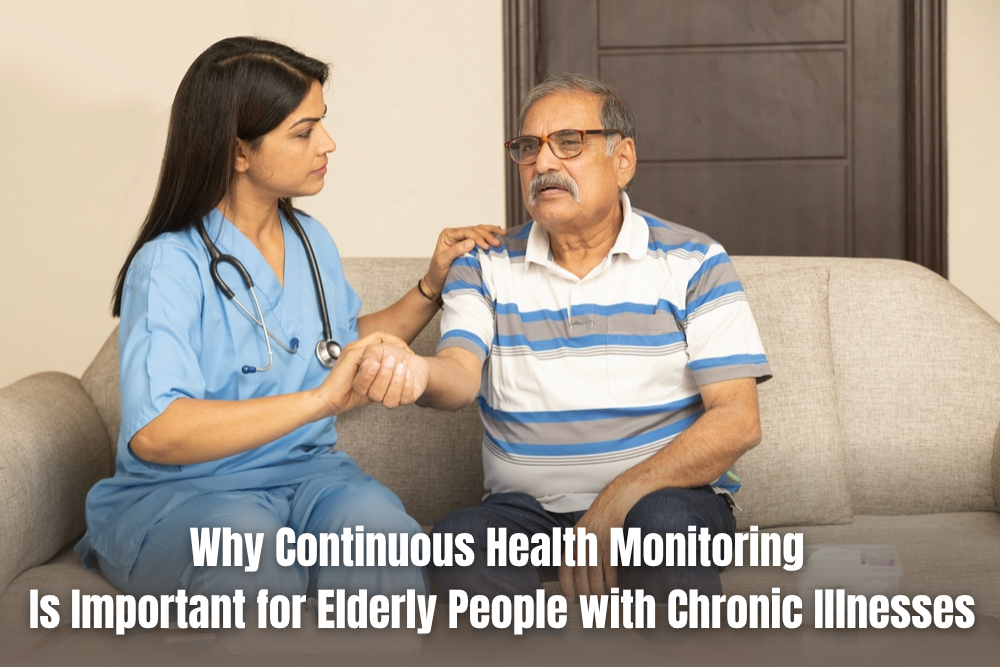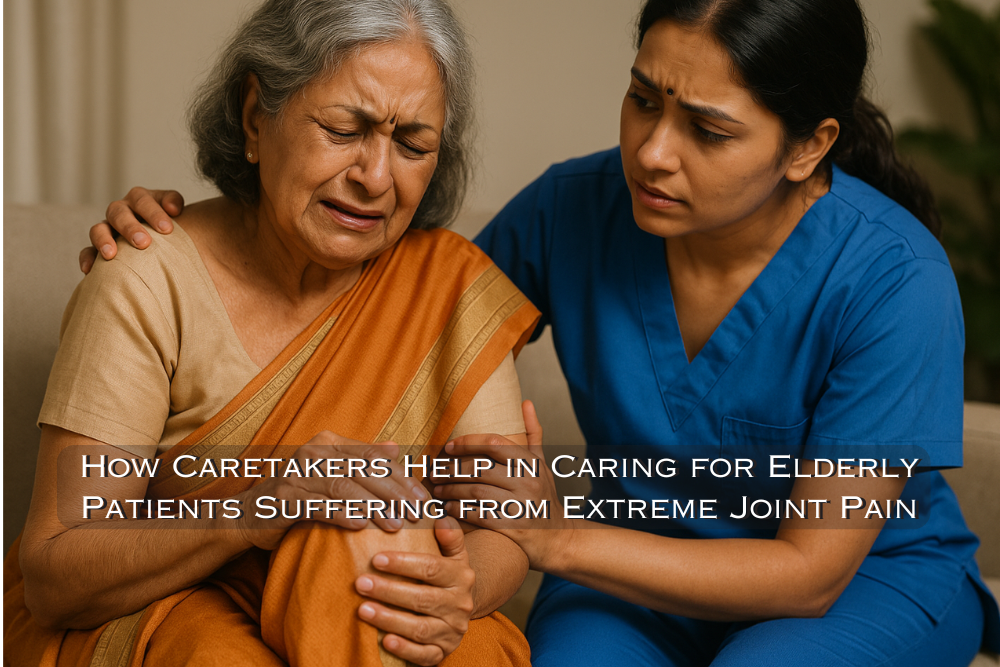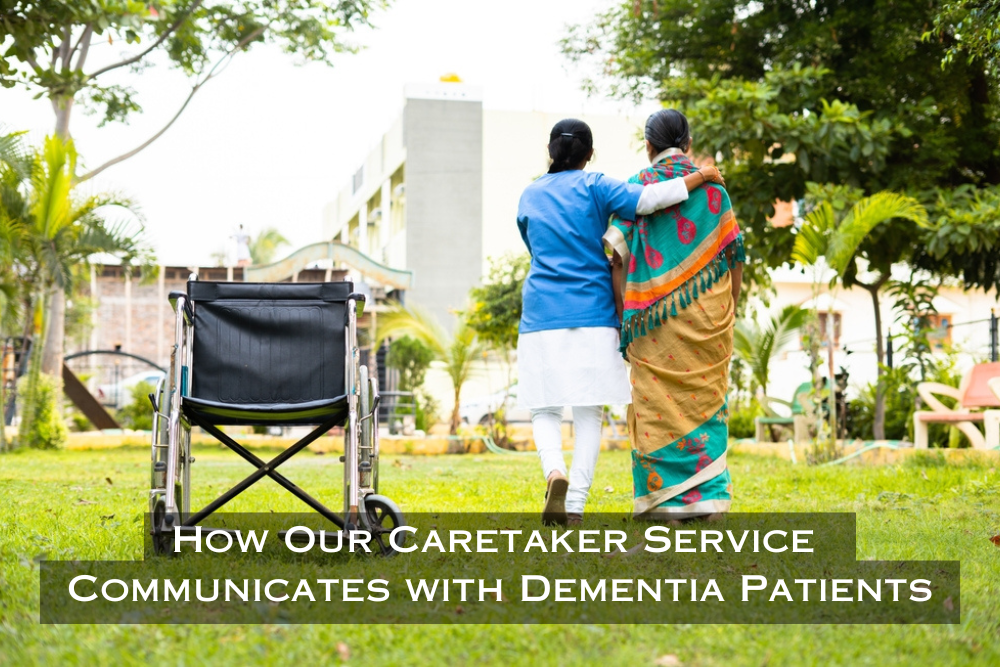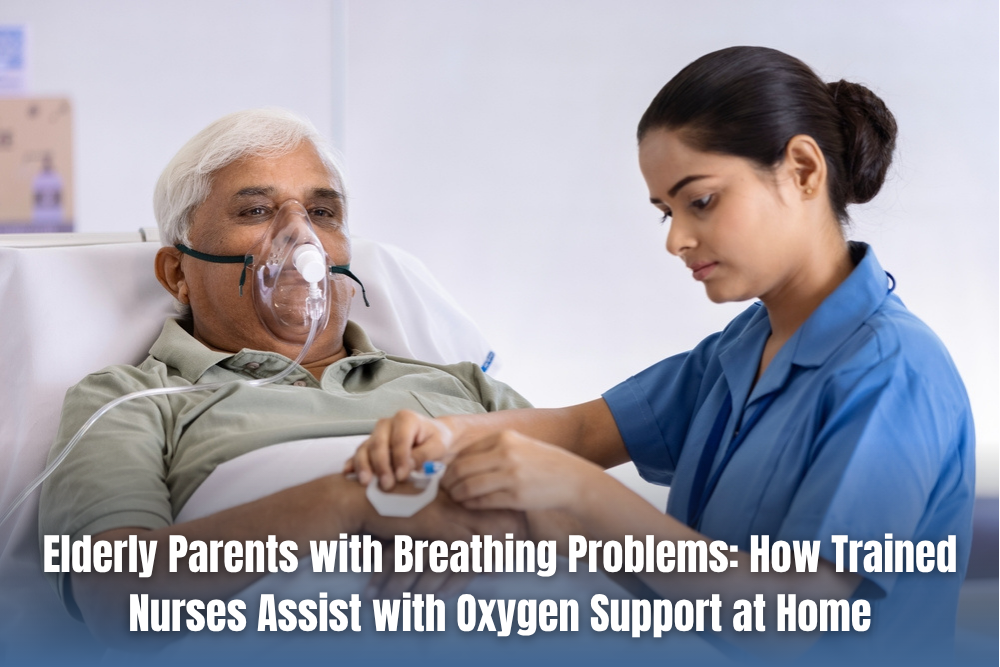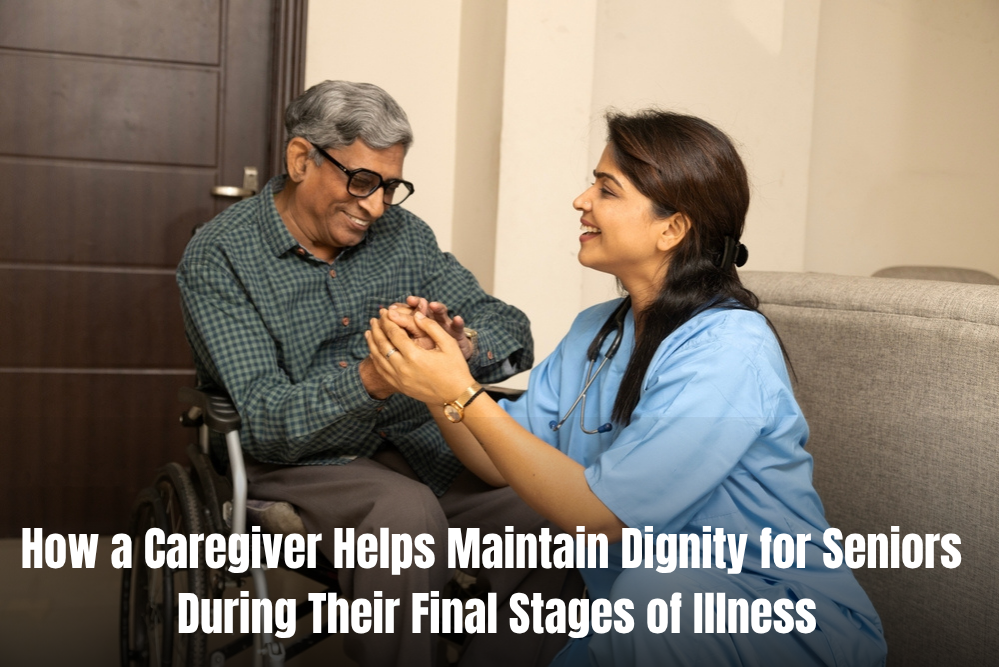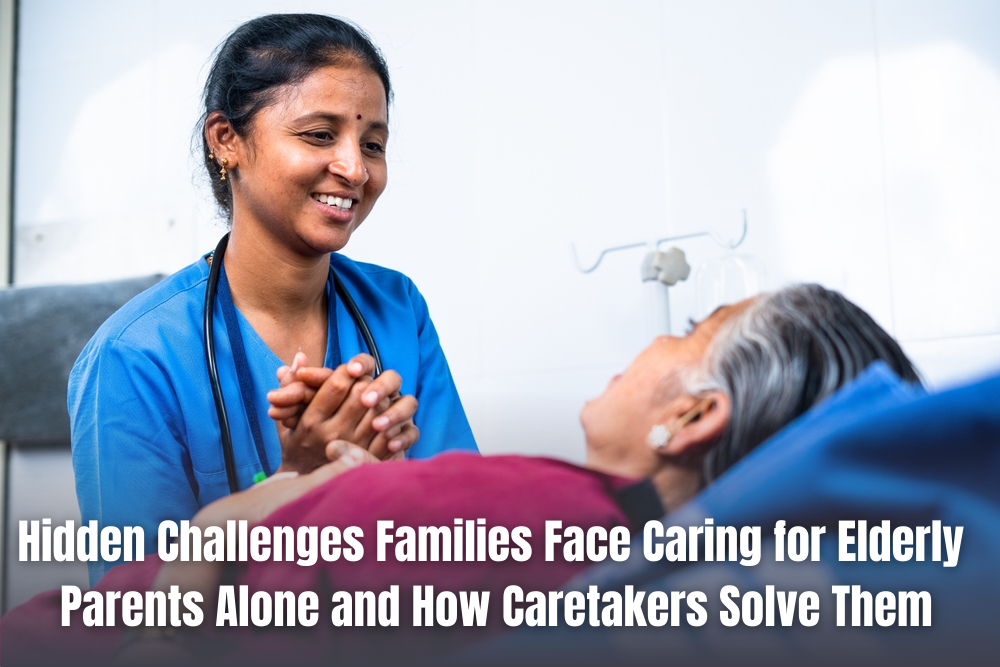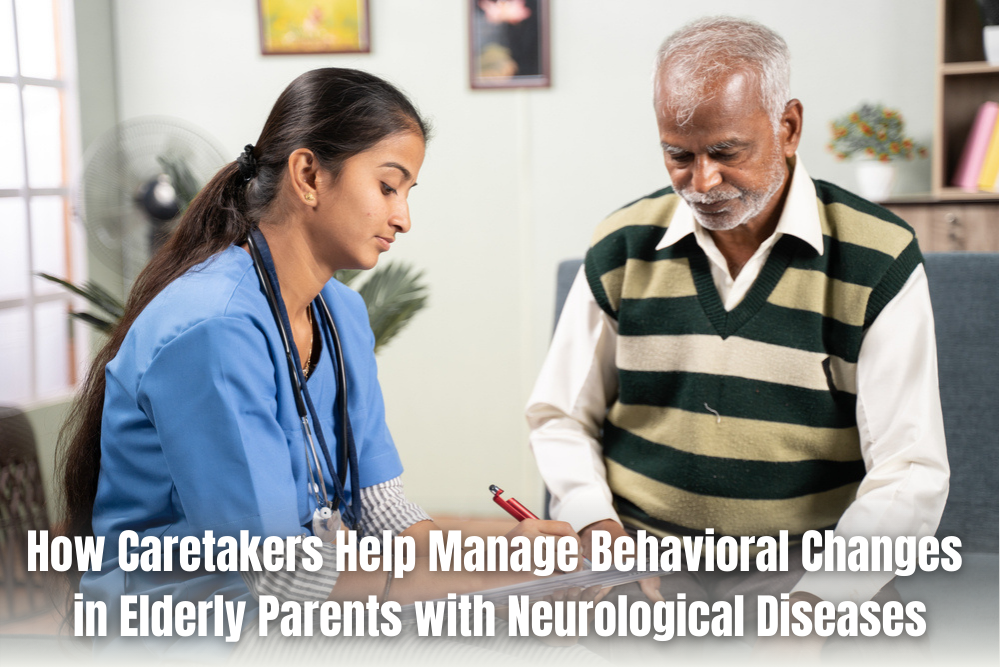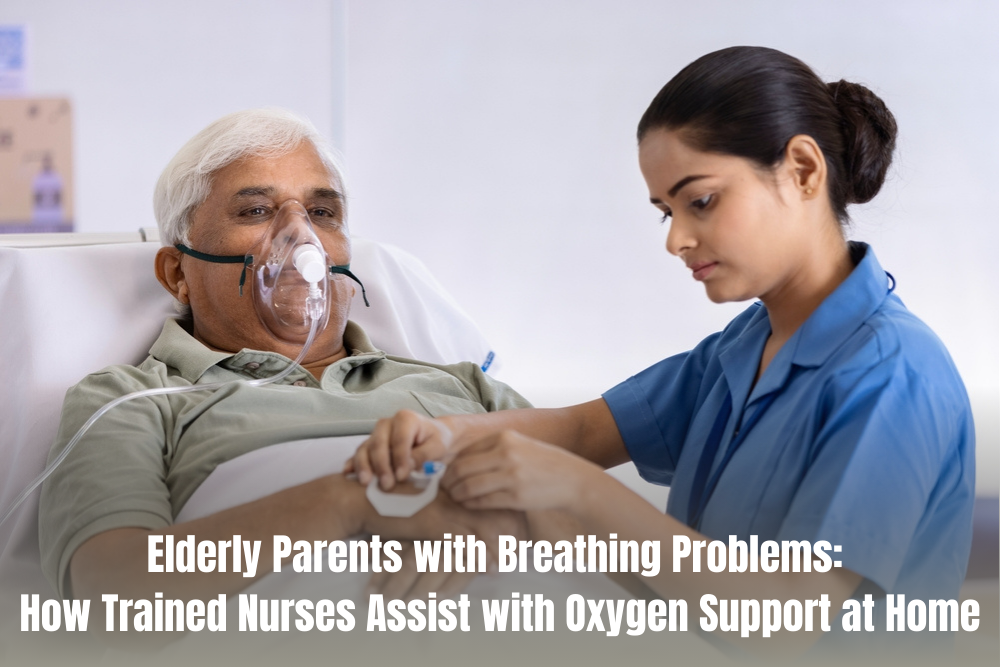As our parents or grandparents age, their health becomes more sensitive especially when they’re living with chronic illnesses like diabetes, hypertension, heart disease, or arthritis. These conditions don’t just need medication; they need regular and consistent health monitoring to prevent sudden complications.
In this article, you’ll learn why continuous monitoring matters, what vital signs should be tracked, and how trained nurses and caretakers can make this process stress-free for families in India.
Understanding Chronic Illnesses in the Elderly
Chronic illnesses are long-term health conditions that require constant management rather than one-time treatment. The most common ones in elderly people include:
- Diabetes – requires blood sugar control and diet management
- Hypertension – needs regular BP monitoring
- Heart Disease – involves keeping track of pulse, oxygen, and lifestyle
- Arthritis – needs mobility assistance and pain management
- Respiratory Conditions (like COPD or asthma) – require oxygen monitoring and care
For such conditions, even small changes in vitals can indicate early warning signs — that’s why continuous monitoring is critical.
Why Continuous Health Monitoring Matters
1. Prevents Medical Emergencies
Regular checks on blood pressure, sugar levels, oxygen saturation, and heart rate can detect potential problems early. For example, a sudden BP spike or low oxygen level can be treated immediately before it becomes life-threatening.
2. Ensures Correct Medication Management
Elderly patients often take multiple medicines. Continuous monitoring helps caretakers and nurses track how medicines affect vitals and adjust schedules as per the doctor’s advice.
3. Improves Recovery from Illness or Surgery
Patients recovering from surgery or recent hospitalization need close observation to prevent infections, fatigue, or weakness.
4. Brings Peace of Mind to Families
Families can rest easy knowing their loved one’s health is being tracked every day by professionals who can respond quickly to any change.
5. Enhances Quality of Life
With consistent care, seniors experience fewer hospital visits, more comfort, and better overall well-being.
What Caretakers and Nurses Monitor Daily
A trained caretaker or nurse keeps track of key health indicators like:
- Blood Pressure (BP) – to manage heart and stress levels
- Blood Sugar – especially for diabetic patients
- Oxygen Levels (SpO₂) – for respiratory or cardiac patients
- Temperature and Pulse Rate – to detect infections or fatigue early
- Medicine Schedules and Diet Plans – ensuring timely adherence
How Shree Swami Samarth Patients Seva Can Help
At www.sssps.in, we provide trained caretakers and nurses who specialize in caring for elderly patients with chronic illnesses.
Our professionals:
- Monitor vital signs daily
- Maintain detailed health logs
- Manage medicines and doctor consultations
- Provide emotional support and companionship
- Offer 24/7 assistance for patients needing constant supervision
We ensure your loved ones receive the same care and attention they would in a hospital — but in the comfort of home.
FAQs
Q1: How often should vitals be checked for elderly people?
For patients with chronic diseases, daily checks for BP, sugar, and oxygen are recommended, especially in the morning and evening.
Q2: Can caretakers handle medical emergencies?
Caretakers are trained to identify early warning signs and call a nurse or doctor immediately if needed.
Q3: Is a nurse or caretaker better for chronic illness care?
For daily routine monitoring, a caretaker is sufficient. For patients who need injections, drips, or wound care, a nurse is ideal.
Q4: Can health monitoring reduce hospital visits?
Yes. Regular monitoring helps detect issues early, reducing hospitalizations.
Conclusion
Continuous health monitoring is not just about checking numbers — it’s about preventing emergencies, improving comfort, and ensuring peace of mind.
With trained caretakers or nurses from Shree Swami Samarth Patients Seva, your elderly loved ones receive complete care and attention at home — helping them live healthier, happier, and safer lives.


